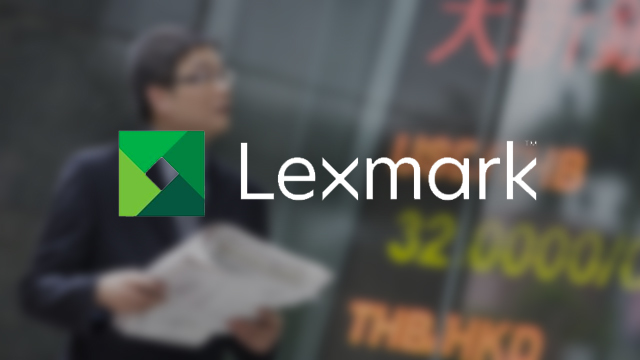Toner News Mobile › Forums › Latest Industry News › Why The US Supreme Court Should Stop Lexmark from Spying on ….
- This topic has 0 replies, 1 voice, and was last updated 7 years, 1 month ago by
news.
-
AuthorPosts
-
newsKeymasterWhy The US Supreme Court Should Stop Lexmark from Spying!
Supreme Court should stop companies from spying on consumers
BY KIT WALSH, OPINION CONTRIBUTOR.
“My Friend Cayla” is your child’s new high-tech best friend. The doll tells your child what she’d like to do or places she’d like to go. She loves the song “Let it Go,” for example, and dreams of going to Disneyland. But My Friend Cayla isn’t just serving up stealth ads disguised as childhood bonding. She’s also recording everything your child tells her – from her daydreams to her secrets – and sending it back to the doll’s manufacturer. What could go wrong?
A lot. A security researcher discovered critical flaws in Cayla’s software, flaws that would allow anyone with a little know-how to hack into Cayla’s system, and communicate directly with your kid. This is real life in today’s Internet of Things, where Internet-connected devices have taken up residence in our most intimate spaces. This week, the United States Supreme Court will hear arguments in a case that will determine exactly how much control corporations have over your things, and how much you get to know about what they’re up to.
Impression Products, Inc. v. Lexmark International Inc. is, on its face, about whether you’re allowed to refill Lexmark toner cartridges or if the printer company can force you to buy brand-new ones instead. The last court that heard this case was the “Federal Circuit,” which specializes in patent law. It saw no problem in letting Lexmark write their own rules for what customers can do with the products they bought, and launch patent lawsuits against people who defy their wishes. What do toner cartridges have to do with your kid’s toys acting as double agents?
The power that Lexmark is seeking here is one that many companies have coveted for a long time: the ability to dictate their own commandments that customers must live by and enforce them in a court of law. Thou shalt not use competing toner. Thou shalt not look under the hood to see if we are cheating on emissions or being reckless with your privacy. Thou shalt repair your property only at authorized dealers using expensive, official parts.
It’s already common for companies to try to use “Terms of Service” or “End-User License Agreements” to restrict these kinds of activities, but they’ve had mixed results trying to enforce them in the courts. Lexmark itself tried a parade of theories about why the law should forbid its customers from using competing ink, all without success until the Federal Circuit handed them a victory under patent law. Some would say that customers know what they’re getting when they buy a product subject to terms and conditions, so it’s fair to hold them to the seller’s restrictions. But this overlooks three critical things.
First, the law traditionally informed patent holders that when they sell a product, they’re not allowed to restrict what customers do with it. Until the Federal Circuit started changing the rules, they were on notice that they should sell for a price that makes them happy given
that they are exhausting their ability to later control the use of the product.Second, there are good reasons not to put the burden on customers to read wordy terms and conditions: it would take you months to read all the terms you’re subjected to in a single year and you might need a lawyer to understand them. Courts shouldn’t enforce unfair, one-sided restrictions and surprising ‘gotchas’ when suddenly you’re no longer allowed to repair, resell, inspect, or even talk about the things you bought.
Third, patent law has always sought a balance between rewards to inventors on the one hand, and free market competition and the rights of purchasers on the other hand. When you expand patent rights too far, you wind up harming innovation because whoever is sitting on a pile of patent rights gets an effective veto over products they didn’t even invent. You also damage the rights people traditionally exercise over their own property – like refilling an ink cartridge or opening up a toy to see if it might have security flaws that could put your family in danger. As we incorporate more and more “smart” devices in our home, we need to be able to make sure that they are safe, secure, and operate in the way we want them to.
The Supreme Court should reverse the dangerous ruling in the Lexmark case and restore the longstanding balance between patent rights and the public good. Like My Friend Cayla, we’ll be watching.
Kit Walsh is a staff attorney with the Electronic Frontier Foundation, the leading nonprofit organization defending civil liberties in the digital world. She was an author of a friend-of-the-court brief submitted to the Supreme Court in this case.
The views expressed by contributors are their own and are not the views of The Hill.
http://thehill.com/blogs/pundits-blog/technology/324733-supreme-court-should-stop-companies-from-spying-on-consumers
-
AuthorMarch 21, 2017 at 1:06 PM
- You must be logged in to reply to this topic.



